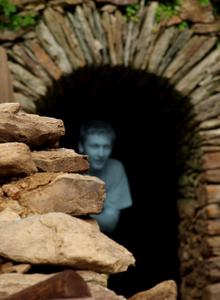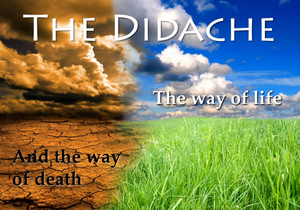 Some of you who read this article will do so out of genuine curiosity wondering why anybody wouldn't want to celebrate Christmas. To you, I say "shalom [peace] and welcome." I offer this article to you in a spirit of gentleness and humility. This article was written to share my heart and the thoughts of a surprising number of believers around the world who do not celebrate Christmas.
Some of you who read this article will do so out of genuine curiosity wondering why anybody wouldn't want to celebrate Christmas. To you, I say "shalom [peace] and welcome." I offer this article to you in a spirit of gentleness and humility. This article was written to share my heart and the thoughts of a surprising number of believers around the world who do not celebrate Christmas.
Other readers may come here seeking "ammunition" to use against family, friends, or coworkers in a battle of words and wits to prove that Christmas is a pagan holiday and celebrating it is evil and a sin against G-d. If this is you, may I also offer you "shalom and welcome" and mention that beating someone over the head with the facts will almost never win them over to your side. As always, our focus should be on Messiah Yeshua and on dealing with the "logs" in our own eyes first before dealing with the splinter in our brothers' eyes (Matthew 7:3).
May Paul's words to Timothy continue to guide and encourage us today:
The Lord's bond-servant must not be quarrelsome, but be kind to all, able to teach, patient when wronged, with gentleness correcting those who are in opposition, if perhaps God may grant them repentance leading to the knowledge of the truth, and they may come to their senses and escape from the snare of the devil, having been held captive by him to do his will. (2 Timothy 2:24-26)
With that being said let's get on to the list...
 If a person has a fair amount of exposure to Mainstream Christianity, and a familiarity with the Bible, he may notice that Mainstream Christianity often de-emphasizes the Old Testament and puts a disproportionate amount of emphasis on Paul's epistles. I would hesitate to say that any part of the Scriptures can be overemphasized. However, if we give uncalled-for weight and emphasis to certain parts of the Bible, and neglect what the rest of the Scriptures teaches about an issue, we will probably develop and imbalanced view of that particular issue.
If a person has a fair amount of exposure to Mainstream Christianity, and a familiarity with the Bible, he may notice that Mainstream Christianity often de-emphasizes the Old Testament and puts a disproportionate amount of emphasis on Paul's epistles. I would hesitate to say that any part of the Scriptures can be overemphasized. However, if we give uncalled-for weight and emphasis to certain parts of the Bible, and neglect what the rest of the Scriptures teaches about an issue, we will probably develop and imbalanced view of that particular issue.


